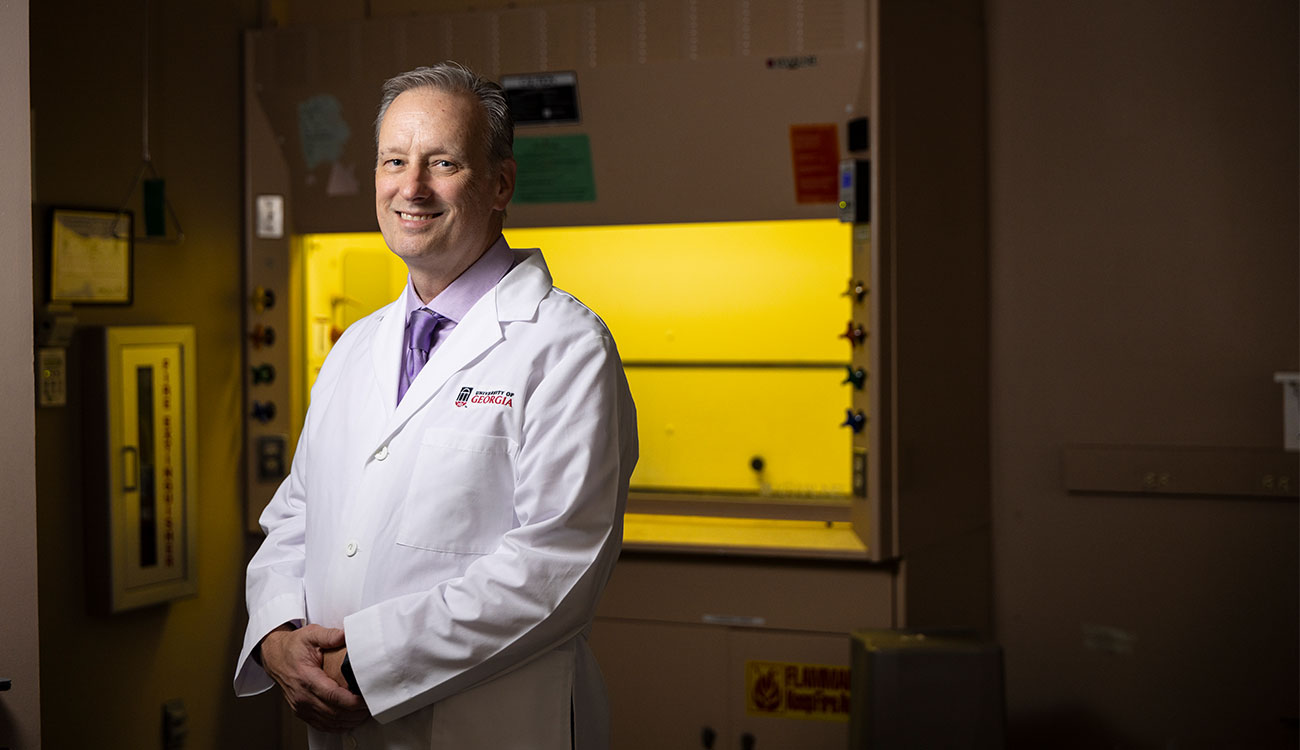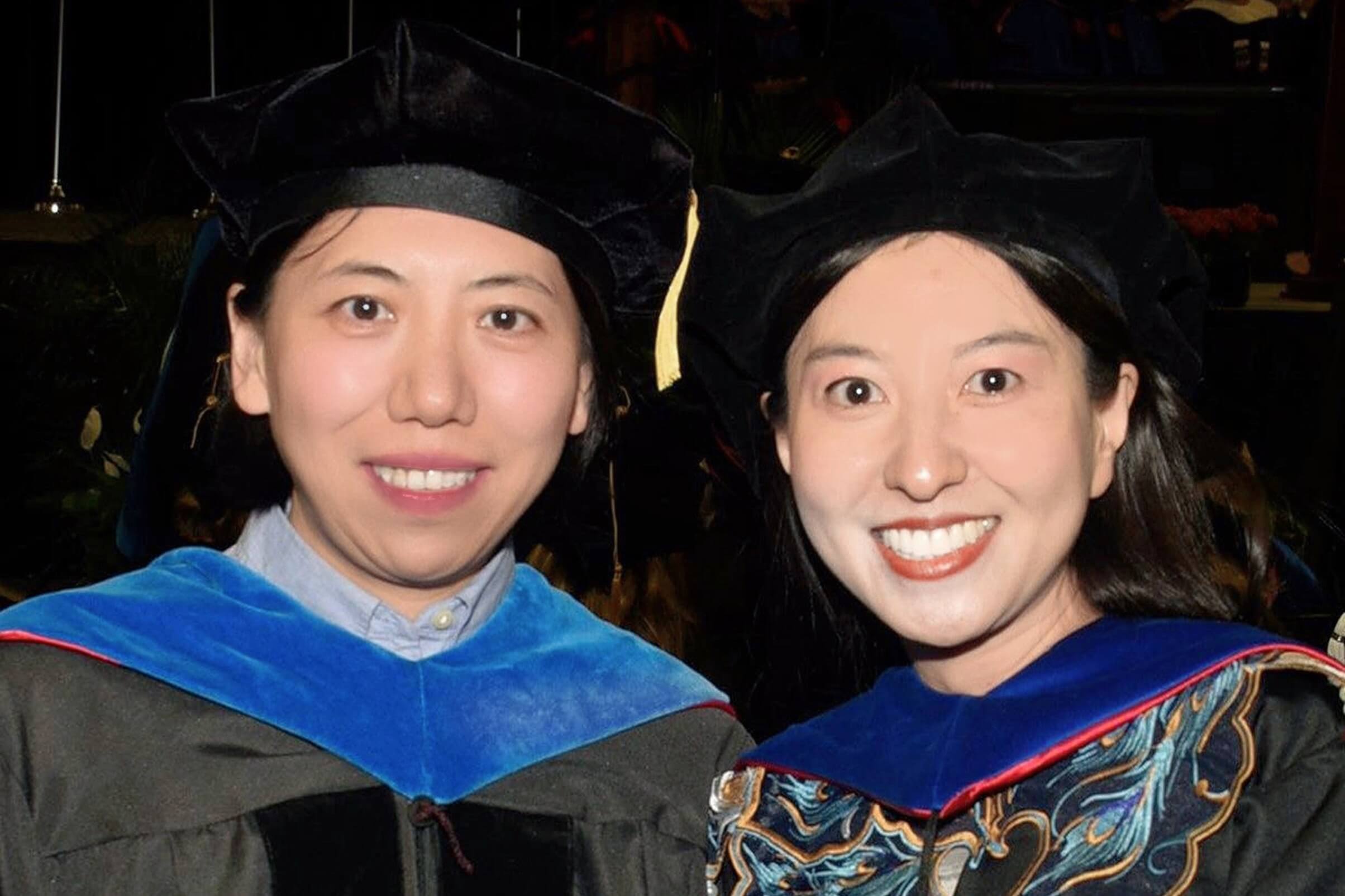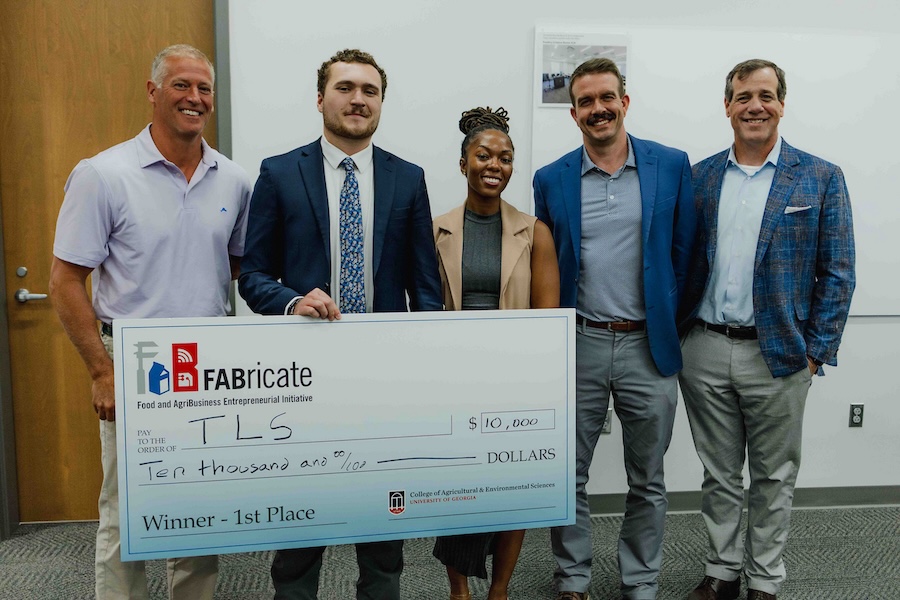The University of Georgia is partnering in a biopharmaceutical innovation institute that aims to boost market production of cell-based therapies and develop a skilled workforce to work in the biotechnology and pharmaceutical industry.
The new public-private partnership, called the National Institute for Innovation of Manufacturing Biopharmaceuticals (NIIMBL) will focus its efforts on driving down the cost and risks associated with manufacturing advanced cell and gene therapies for biopharmaceutical production.
Steven Stice, director of the UGA’s Regenerative Bioscience Center and D.W. Brooks Distinguished Professor in the UGA College of Agricultural and Environmental Sciences, is the UGA lead in the partnership, which is coordinated by the University of Delaware.
NIIMBL represents a total investment of $250 million, including $129 million in private cost-share commitments from the NIIMBL consortium of 150 companies, nonprofits, educational institutions and state partners across the country, combined with at least $70 million in federal funding from the U.S. Department of Commerce.
NIIMBL is the 11th institute under the Manufacturing USA National Network for Manufacturing Innovation initiative created to advance manufacturing leadership and restore jobs to the U.S.
This recent success follows an announcement in 2016 by the U.S. Department of Defense that an MIT-led team involving UGA was selected for funding as the eighth NNMI institute.
“We are pleased to have UGA participate in these high-profile public-private partnerships that are aimed at advancing U.S. leadership in key manufacturing sectors,” said UGA Vice President for Research David Lee. “We are eager to assist industry partners in meeting their goals through the development of new and existing intellectual property, and the training of an appropriate workforce.”
Biopharmaceuticals are increasingly showing promising results in treating some of the most prevalent and debilitating diseases affecting human health. But manufacturing of biopharmaceuticals is not without large-scale operational and technological challenges, Stice said.
These biologically sourced drugs are different from traditional small molecule, synthesized drugs. For example, he said, the synthesized drug ibuprofen can be precisely copied and characterized, and result in varied generic versions. In contrast, biopharmaceuticals like vaccines are much more complex and rely on the use of a biological transformation. As living cells, they are highly sensitive to their conditions and surroundings.
Technical projects, which will be designed by the industry partners of the institution, will be selected through a competitive process and funded via subaward agreements with NIIMBL members.
Stice, a Georgia Research Alliance Eminent Scholar, will facilitate team assembly for response to the project calls, leveraging years of collective experience in regenerative medicine and technology development. He is also co-director of the Regenerative Engineering and Medicine research center, or REM, a collaboration by Emory University, the Georgia Institute of Technology and UGA.
“There is a crippling regulatory gap, which is commonly referred to as ‘the valley of death’ in moving biotech products from discovery to commercialization,” Stice said. “What NIIMBL presents is an opportunity to help improve government regulation, minimize failure, create job growth and improve health care quality, all while reducing costs in the U.S.”
For more information about the role UGA's Regenerative Bioscience Center plays in developing biotechnology that will shape the future visit www.rbc.uga.edu.






